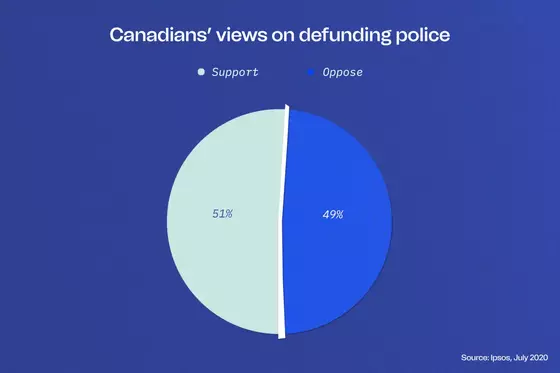On that committee you referenced.
https://rabble.ca/economy/growing-support-for-defunding-of-police-prompt...
A move the report praises as “practical” was the June 2019 decision by Halifax regional council to rescind a roughly $350,000 it had previously allocated to purchase armoured vehicles. Council reallocated those funds to diversity and inclusion offices in the municipality, as well as to other anti-Black racism programs.
That seems to be the only money actually reallocated even though the police budget has been increasing while crime has been decreasing.
There is no mention of reversing the following:
Funding for the Halifax Regional Police has steadily increased over the last several years. To find the money municipal councilors has to find cuts elsewhere in their budget. For instance, they cut funding to local public libraries.
This was placed in the hands of:
The report, Defunding the Police: Defining the Way Forward for HRM, was authored by the Halifax Board of Police Commissioners Subcommittee to Define Defunding the Police.
The Police Commissioners are defining defunding. Isn't that like putting the fox in charge of the hen house?
https://globalnews.ca/news/8517133/defunding-halifax-police-report/
A committee tasked with defining how to defund Halifax-area police has instead produced a wide-ranging report recommending a shift away from a “reactive” enforcement-based policing model – but it includes no specific budget cuts.
The report on defunding doesn't include any transfer of funds along with the tasks.
I am reminded of Greta Thunberg saying "blah blab blab". Lots of lip service and baby steps.





